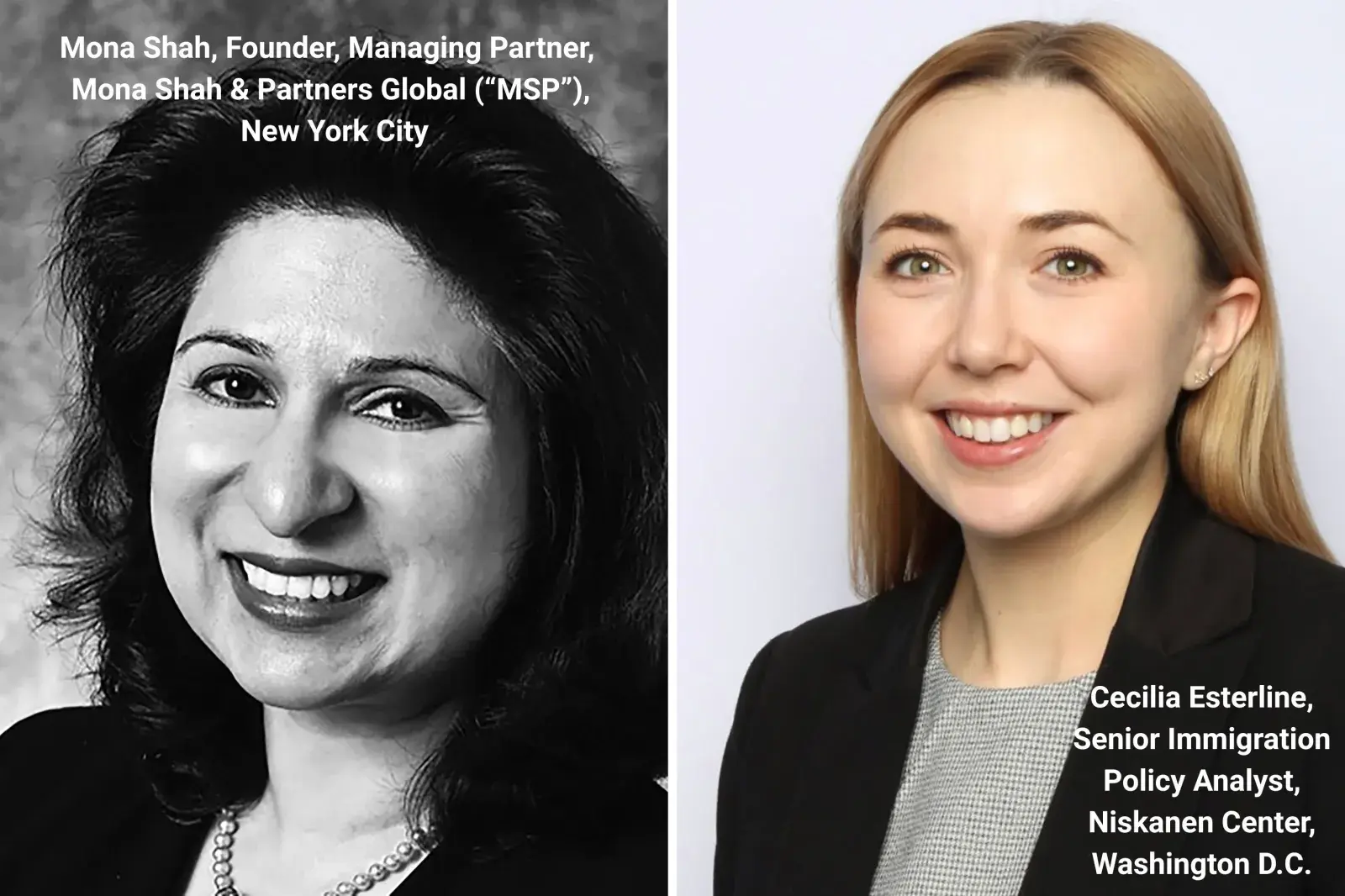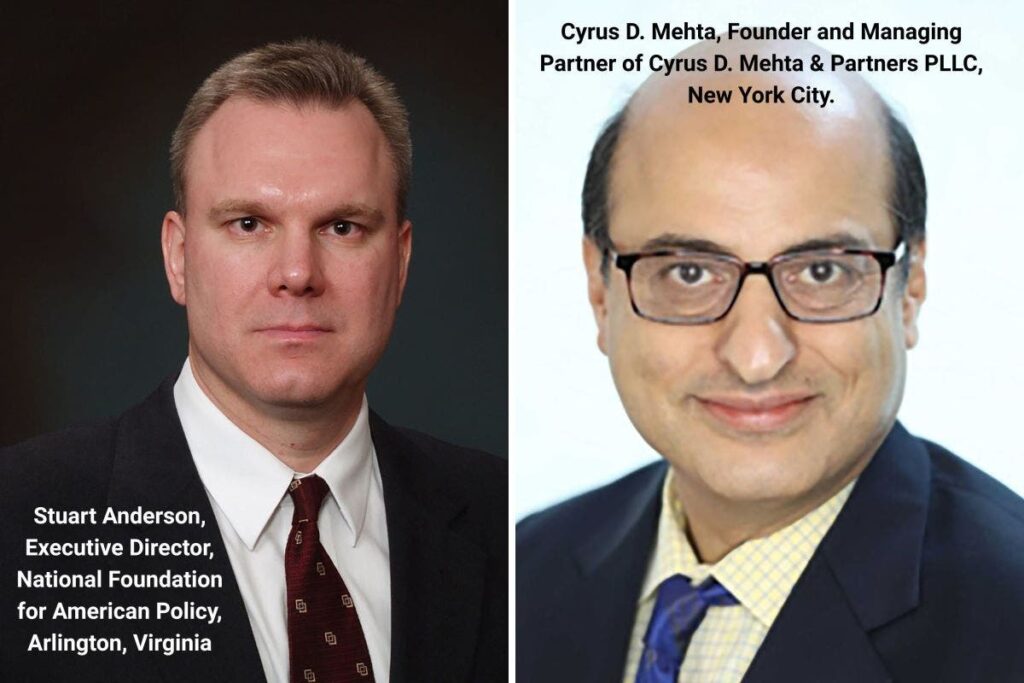The Trump administration’s recent proclamation imposing a $100,000 supplemental fee on H-1B visa petitions, combined with plans to alter how visas are allocated, has triggered alarm across legal, business, and policy circles. Immigration attorneys warn of confusion and economic disruption, while analysts suggest the rule may mark a decisive shift in the United States’ approach to high-skilled immigration.
Newsweek sought comment from immigration attorneys and from businesses, large and small, across the country affected by the changes.
Why It Matters
The stakes extend far beyond immigration paperwork. By raising costs and reshaping how visas are awarded, the Trump administration’s policy could alter the country’s ability to attract and retain global talent, from engineers and scientists to doctors in underserved communities.
Supporters argue the changes protect American jobs, but critics warn they will sideline recent graduates, squeeze smaller employers, and drive companies to shift work abroad—an outcome that could weaken U.S. competitiveness in technology, healthcare, and higher education.
What To Know
The H-1B visa program, which allows U.S. companies to employ foreign workers in specialty occupations, has long been a flashpoint in debates over globalization, innovation, and domestic job protection.
Each year, demand for the 85,000 available visas far outstrips supply, leading to a random lottery to allocate them. International students graduating from U.S. universities, technology companies, hospitals, and school districts are among the many stakeholders.
(L) Stuart Anderson, National Foundation for American Policy; (R) Cyrus Mehta, Cyrus D. Mehta & Partners PLLC | (National Foundation for American Policy/Cyrus D. Mehta & Partners PLLC)
The $100,000 Fee
President Trump’s September 19 proclamation introduced a requirement that employers pay $100,000 for each H-1B visa holder entering the country. The fee, which must be paid upfront, represents a dramatic increase from existing filing costs.
The Department of Homeland Security has not yet clarified how the fee will be collected, how it will be spent, or whether exemptions will be made for renewals or extensions.
Stuart Anderson, executive director of the National Foundation for American Policy, described what he sees as the first step in a wider campaign: “The proclamation placing a $100,000 fee on the entry of H-1B visa holders is the first in an expected series of measures designed to restrict high-skilled immigration,” Anderson said.
He warned that such a policy would privilege senior executives over recent graduates: “If the Trump administration shifts H-1B selection using the Department of Labor’s salary scale that identifies the amount of experience to fill a position, it would push the country’s talent acquisition policy toward a type of central planning, and one that makes no sense for fostering innovation.”

(L) Mona Shah, Mona Shah & Partners Global; (R) Cecilia Esterline, Niskanen Center | (Mona Shah & Partners Global/ Niskanen Center)
Industry and Worker Impact
Attorneys say the cost increase will reshape employer hiring decisions. “The $100,000 supplemental fee will completely eviscerate the H-1B program, and it would just impede and discourage employers from hiring H-1B workers,” said Cyrus Mehta, a New York-based immigration lawyer.
He noted that the combination of the fee and the administration’s proposal to weight selection by salary “would be a total disincentive for graduates to get hired in the U.S.”
For businesses, particularly smaller companies and nonprofits, the added cost could be prohibitive.
Historically, H-1B sponsorship has been concentrated in large tech companies such as Microsoft, Google, and Amazon, as well as Indian IT services firms like Infosys and Wipro.
But the program also supports employers in less visible sectors, including rural hospitals, universities, and school districts recruiting math and science teachers. Critics argue these employers will find it impossible to shoulder the additional financial burden.
Cecilia Esterline, Senior Immigration Policy Analyst at the Niskanen Center in Washington D.C., emphasized the confusion and ripple effects already hitting employers and international students: “We’ve seen people scrambling to change flights, companies advising employees not to travel, and small nonprofits suddenly wondering if they can put up another $100,000 for a petition they’ve spent weeks preparing. That kind of confusion is not just disruptive—it risks pushing startups and talent to Canada or elsewhere. If employers can’t plan with certainty, many will look abroad for stability,” she said.
Mona Shah, founder and managing partner of Mona Shah & Partners Global in New York, said employers are already recalculating recruitment strategies: “The immediate backlash we are witnessing is that potential applicants and corporations are rethinking both employment and recruitment plans. While other measures can be lobbied and challenged, it is likely that the exorbitant fees will remain for the time being,” she explained.
“We have heard from potential employers that their economic calculation now requires them to determine whether they should continue recruiting new graduates from top universities with the hope that they will become viable employees or instead hire a qualified and experienced foreigner at a lower salary to immediately hit the ground running. Either way, in the short, medium, and long term, for a short-term gain, this excessive fee will hurt the U.S. workforce and ultimately the economy.”
Cyrus Mehta pointed to the chaos immediately following the proclamation. “A lot of people tried to rush back to the U.S. … and that was completely unwarranted. We also heard about H-1B workers who were on a flight leaving the U.S. … they came out of the flight … after hearing the news in the cabin itself.”
Seattle attorney Tahmina Watson emphasized the broader consequences for U.S. innovation. “America’s success story has been powered by immigrant talent. From breakthrough medical research to world-changing technology companies, H-1B workers have been integral to our progress. Pricing them out doesn’t just harm employers, it risks dimming the very engine of American innovation. This is not just an immigration issue; it is an innovation and competitiveness crisis.”
(L)Tahmina Watson, Watson Immigration Law; Angelo Paparelli, Vialto Law (US) PLLC | (Watson Immigration Law/ Vialto Law (US) PLLC)
Legal Questions and Uncertainty
Several attorneys questioned the legal basis for the policy. Angelo Paparelli, a California-based lawyer, argued that the proclamation lacks both clarity and precedent. “This proclamation lacks the factual predicate … justifying the determination that the H-1B entry ban is in the national interest,” Paparelli said. He noted that the measure “does not say how the $100,000 fee will be paid, where the $100,000 fee will be deposited and how it will be spent.”
Paparelli also highlighted practical concerns, such as how employers could make such large payments given that U.S. Citizenship and Immigration Services no longer accepts paper checks. “Most credit cards have limits that are far less than the $100,000 fee,” he observed.
Mehta echoed frustrations about the lack of guidance. He said attorneys have been inundated with client questions but cannot provide definitive answers: “It was done so incompetently that there was no clarity at all,” he said. “We are getting all kinds of tricky questions, and it’s very hard to give advice with certainty.”
(L) Michael Wildes, Wildes & Weinberg PC; First Lady, Melania Trump | (Wildes & Weinberg PC)
A Divided Business Response
Some lawyers say the administration has already walked back parts of the proclamation to avoid harming U.S. companies. “Our office is glad to see that the Administration has limited Friday’s proclamation significantly so that American businesses that currently rely on H-1B talent are not affected,” said Michael Wildes, managing partner of New York City-based Wildes & Weinberg who previously represented first lady Melania Trump.
He added: “Every industry, whether that’s engineering, medical, higher education, science, or energy, uses the H-1B visa to supplement our domestic labor force.”
Wildes noted, however, that exemptions may be granted for physicians in underserved areas: “One in four—25 percent—of physicians practicing in the United States are foreign-born,” he said. “Prohibiting these professionals from entering the U.S. and working with vulnerable Americans would devastate our healthcare system.”
Broader Policy Context
The new rule comes after years of debate about whether H-1B visas are being misused by outsourcing firms or undercutting domestic workers.
Critics argue that some employers pay foreign workers less than their American counterparts, though Department of Labor data requires employers to certify they are paying the prevailing wage.
Supporters counter that the visas are essential to filling shortages in science, technology, engineering, and medicine.
Past efforts to reform the lottery have failed. In 2021, the Department of Homeland Security finalized a rule to allocate visas based on salary levels, but the Biden administration delayed and eventually shelved it.
Trump’s new proposal revives the concept, but with an even higher financial threshold for employers.
Esterline warned that the proclamation “conflates the H-1B with the O-1 visa reserved for Nobel Prize winners and other top-tier talent. The real effect will be on international students, small businesses, and universities. If we make it harder for graduates to stay, that undermines U.S. higher education and trickles down to local economies, especially in districts where universities are key employers.”
She added that while the policy is billed as a fraud-prevention measure, “it does not address the problems it claims to fix and instead risks harming innovation and competitiveness.”
Legal Challenges Expected
Litigation is already underway, with legal challenges expected to focus on whether the president has authority to impose the fee through proclamation and whether the lottery changes require congressional approval.
Paparelli predicts that if the measure survives in court, it “would have major adverse impacts on the H-1B program, and force U.S. employers to consider recruiting fewer noncitizens here or seek more welcoming immigration options in other countries.”
What People Are Saying
Stuart Anderson (National Foundation for American Policy, Arligton, Virginia): “It would make it far more likely a U.S. company could hire foreign-born senior managers on H-1B petitions than promising recent international students graduating from U.S. universities with degrees in key technical fields.”
Cyrus Mehta (Immigration attorney, New York): “I just don’t see how an employer would be willing to hire a grad and pay the $100,000 filing fee.”
Angelo Paparelli (Immigration attorney, Los Angeles): “The September 19, 2025, proclamation equates layoffs with abuse—a false conflation.”
Michael Wildes (Managing Partner, Wildes & Weinberg, New York): “You cannot have a competitive workforce without accounting for foreign talent.”
Tahmina Watson (Immigration attorney, Seattle): “If I am on an H-1B visa, what happens if I cannot get back by Saturday night? [September 20/21, when the proclamation came into force] … The proclamation does make clear that there must be proof of $100k payment at the time of entry. As such, there’s a strong possibility of being detained.”
Cecilia Esterline (Niskanen Center, Washington D.C.): “This approach does not address the fraud it claims to target. Instead, it risks pushing talent and startups abroad while discouraging international students from even trying to stay in the U.S.”
Mona Shah (Mona Shah & Partners Global, New York): “Why is he [Trump] doing this? He wants to create noise—much doesn’t make sense. When he started, we were (asking) how would Donald Trump “2.0” fit in? He likes Community Board 5 and finance, but immigration has been disastrous, even making high-net-worth individuals withdraw, saying they no longer want involvement.”
What Happens Next
The Department of Homeland Security must clarify how the $100,000 fee will be collected and whether exemptions apply, while the administration advances a rule to weight H-1B selection by salary, arguing that the reforms will protect American jobs and ensure visas go to the “best and brightest” workers.
Lawsuits are already moving forward to block the policy, and business groups are expected to mount opposition, but unless courts intervene, the fee could take effect at once, with the new selection process potentially in place for the next H-1B filing season.
For now, the only certainty is uncertainty. Businesses, universities, and foreign professionals are left waiting for clarification as the Department of Homeland Security prepares to issue implementing regulations.
Until then, employers face difficult decisions about hiring, project planning, and long-term investment in the U.S.
Read the full article here

